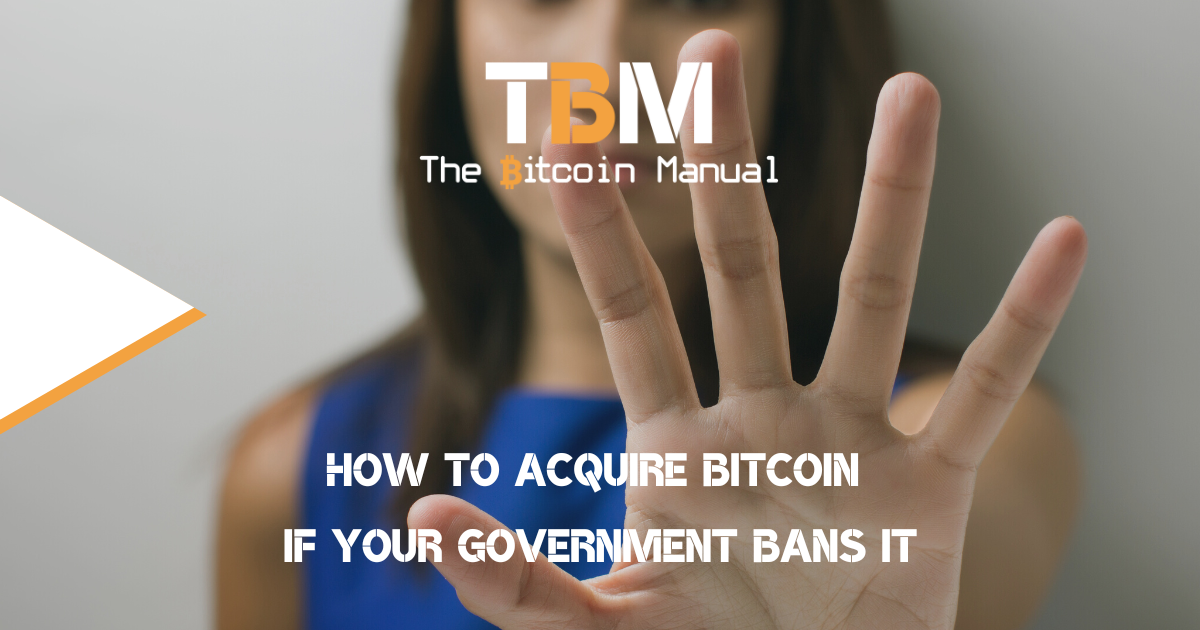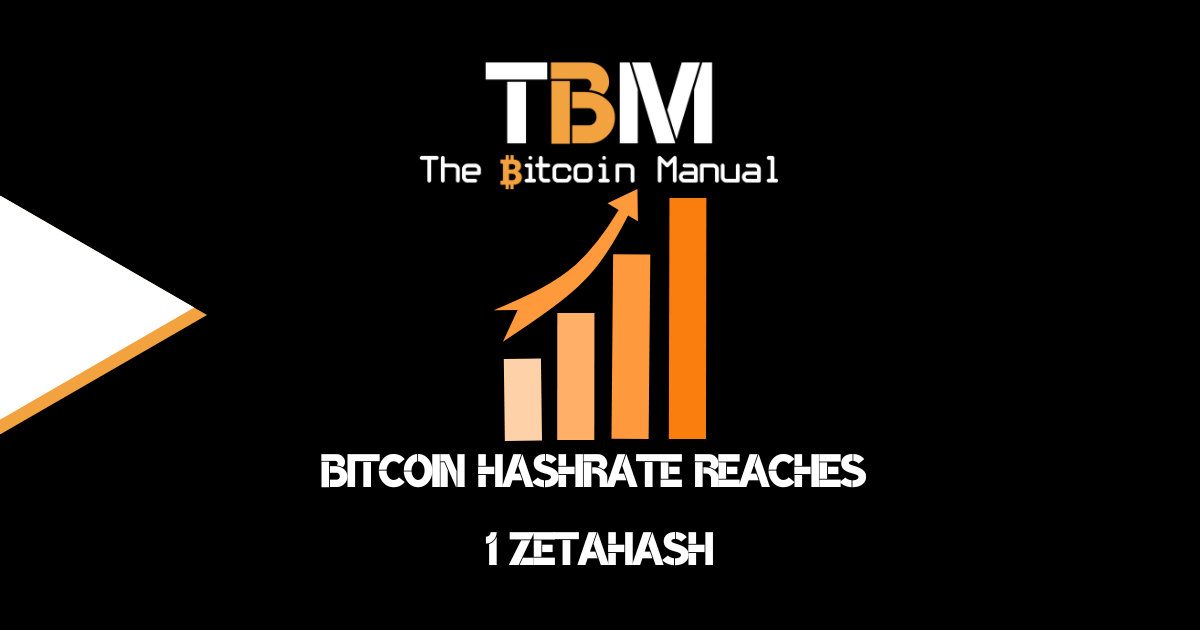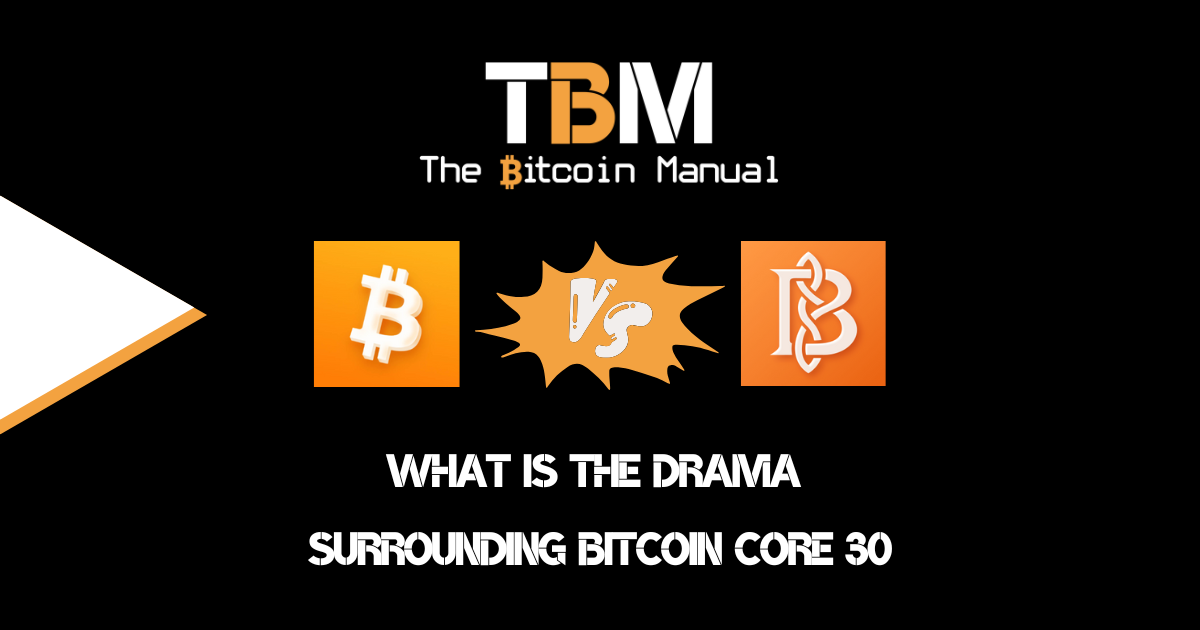If you ask many a nocoiner or bitcoin sceptic why they see no reason to acquire any stake in bitcoin, they’ll often resort to the statist argument of
“Well, the government will just ban it if it gets too big”.
The idea that governments worldwide will ban bitcoin is popular for a good reason. Bitcoin bans have already been issued in different forms worldwide, and there is no sign that countries will remain open to the idea of having competition for money within their borders, especially in regions where currency devaluation may already be quite aggressive.
By allowing capital to flow into bitcoin, these countries’ central banks would have to deal with further selling pressure of their local currency and thus erode the ability to retain wealth within the national currency the central bank manages.
Bitcoin threatens a significant source of the government’s power—the power to create money and force everyone to use it. The ability to generate an income from seigniorage and devaluing savers’ claims on goods and services is how governments around the world remain solvent. The fiat system works as long as citizens require fiat to pay their taxes and save in a currency that governments can re-allocate to themselves.
Bitcoin makes it far harder for governments to practice this sort of fiscal and monetary policy since bitcoin can give monetary sovereignty to the individual and limit central banks’ abilities to affect the price of money. Under a bitcoin standard, there is a fixed supply of money that no one can issue on a whim, and to acquire it, you either need to render a service. Sure, governments can still function under a bitcoin standard or having bitcoin compete with them for the savings of its citizens. Still, it will be restricted in how much of the country’s productivity it can lay claim to before the free market would force them to pivot.
That’s no small accomplishment.
Bitcoin is a historical development that profoundly alters the status quo between the rulers and the ruled. Many compare its impact in giving individuals more power to that of the invention of gunpowder, the printing press, and the Internet.
As more people move towards bitcoin to preserve what little purchasing power they have left, we might see governments look to shut off that exit door. Bitcoin is still a tiny fraction of the world economy today, but if it continues to onboard users and more people store their wealth in the network, it could result in countries drawing on the ban hammer.
There’s no question governments would want to protect their racket from an encroaching monetary competitor in bitcoin.
The 100 million satoshi question is whether they’ll be successful.
“I don’t believe we shall ever have a good money again before we take the thing out of the hands of government, that is, we can’t take it violently out of the hands of government, all we can do is by some sly roundabout way introduce something that they can’t stop.”
Friedrich Hayek, free-market Austrian economist,
Can anyone shut bitcoin down?
If a government becomes takes an antagonistic stance towards bitcoin, there is no way for the authorities to shut it down. Bitcoin has no central authority and no single point of failure, but that doesn’t mean bitcoin has no attack surface; all networks do.
While bitcoin runs on a decentralised, voluntary, and growing network scattered around the world on computers, many are out in the open as public and private companies, while some are cleverly hidden even in places where mining is banned. Hash rate committed to the bitcoin network comes from nearly 100 countries, and that is only going to expand as the need to generate bitcoin within local borders to meet local demand drives up prices and makes mining worthwhile.
With Bitcoin, there’s no central location to march up to and flex your regulatory muscles, you can’t walk up to the bitcoin company and issue Satoshi Nakamoto a cease and desist. As long as anyone on the planet is willing to run a node and offer hash rate to mine bitcoin, it will continue.
In short, no government can kill bitcoin on its own.
To even have a chance to stop bitcoin, every government in the world would have to successfully coordinate simultaneously to shut down the entire Internet everywhere and then keep it off forever.
Unless governments are willing to shut down all internet and energy production and usher in a global return to the Stone Age, bitcoin will remain in operation; in what condition and what size is up for debate, but the cockroach that is the bitcoin network isn’t going anywhere.
Even in that improbable scenario, the network could still remain in operation with the help of radio signals which can still transmit to the bitcoin network, and small portable solar panels or mini-grids set up next to water sources can power the network’s computers.
If satellites are still operating, bitcoin transactions could still be beaming towards the bitcoin network from anywhere on the planet. In short, all aspects of bitcoin are rather robust and decentralised, and bitcoiners worldwide constantly try to reinforce it to strengthen the network.
So complete shutdowns are out of the question, but we governments still have the ban Mjölnir they can swing at bitcoin.
Imposing a bitcoin ban.
Bitcoin is not subject to government regulations; it can operate under no regulation, strict regulation or favourable regulation; it’s all up to the government and how they wish to treat bitcoin. Governments can ban its usage and can cook up a myriad of reasons why this ban would “protect the country”.
To do so, governments must pass laws prohibiting bitcoin as a currency and make this public knowledge. also, central banks, private banks and law enforcement abide by these new laws, while citizens must comply, most likely against their own economic incentive.
If the bitcoin incentive is strong enough, the government disincentive has to be even stronger; this can range from fines, restrictions on ownership and access, confiscations and even jail time.
Governments can ban mining.
Bitcoin mining has been banned in several countries already, so we have a blueprint on how it can be done and how it could be enforced. Public and private companies would be forced to leave the country, and any companies or individuals caught using an ASIC would have it confiscated and the device destroyed.
The sale of ASIC miners locally would also be banned, while imported miners would be subject to confiscation.
Even with bans and enforcement, getting computer parts into a country isn’t impossible. As long as you keep your energy consumption within a range that you cannot be detected for using abnormal amounts, you could still mine bitcoin and submit your proofs to the network over a masked connection.
Governments can ban running a node.
Governments could ban citizens from running a node, but this would not be practical to enforce. The limitation could be banning ready-made nodes from being sold within the country. These are obvious single purpose-built devices, so they could easily be categorised as products that should not be allowed into the country.
The problem with banning node running is the vast majority of bitcoin nodes are not pre-built nodes and are often DIY projects built using a Raspberry PI or even an old laptop. As long as a device can run the bitcoin core software and has enough disk space to hold the entire blockchain or even a pruned version, you have your own node up and running.
Governments can ban hardware signing devices.
As is in the case above, with the pre-build nodes, bitcoin cold storage wallets or signing devices are an obvious single-use piece of technology; it is designed to store and transfer bitcoin and can easily be added to a ban list.
A ban like this is pretty easy to get around since you could simply order parts to build a signing device yourself with the help of online guides by SeedSigner or convert an old-fashioned USB drive into a bitcoin wallet with the help of some free software solutions.
Governments can ban software wallets.
The two major App Stores are run by centralised companies, namely Apple and Google, and these companies are not about to stand up for free speech and access to the software if their share price is at stake. Governments could request that all bitcoin software wallets on these app stores are blocked for their country or removed from their local app store, which would limit user access to these services.
Governments could also have certain domains blocked where users could download certain wallet software. While this may keep some of the less determined users away from software wallet options, it’s by no means impossible to leapfrog.
If you’ve used the internet long enough, you’ll know there’s always more than one way to source something you’re looking for, and there’s always a way to duplicate and disseminate information. This could be as simple as using a VPN to bypass region restrictions to access software or using a Tor browser to source the wallet software.
You could find a forked version of the software on GitHub that has not been banned, or you could acquire the torrent or direct download file from a friend via email. Trying to stop people from using certain software is as close to impossible as it can get.
Take self-custody of your funds.
If your government is on the verge of banning bitcoin or you suspect that the ban is coming, your first point of action would be to secure that wealth. You can either sell that bitcoin for cash, pay your taxes on any gain you made and accept that you won’t have access to bitcoin without jumping through considerable hoops. You would also need to accept the fact that you most likely will never be able to acquire that same amount of bitcoin again as prices rise while you’re locked out of the market.
Alternatively, you could take self-custody of your funds by creating a set of private keys either with a software wallet or hardware wallet and then sending the funds from an exchange to that wallet. If you’re using a KYC exchange, there will be a record of your purchase, you could now claim that the wallet you sent the fund to was not yours and you paid someone else, but you might end up paying the penalty for it.
If the fines are less than your bitcoin is worth, it may be worth it, but this is a risk you’ll have to decide on.
Break ties with bitcoin.
If you’re not keen on dealing with all that legal drama, the better option would be to break ID ties with your bitcoin, selling off all your KYC’d bitcoin, so there is a record for you to hand over that you own no bitcoin is a good place to start.
Once clear with your government, you can use Non-KYC methods such as acquiring bitcoin with gift cards or vouchers or sending money to a friend overseas and getting them to send you bitcoin.
Learn to leverage P2P markets.
If you have a larger amount of money you’d like to commit to bitcoin and the vouchers and remittance market are simply too small or cumbersome for you, your next bet would be to look for bitcoin sellers on P2P markets.
These are online platforms where you can source anonymous users willing to trade bitcoin for fiat currencies on various payment networks; this could be through a traditional banking system or an international service like PayPal.
Review the order books on these P2P exchanges and find orders that match the fiat rails you can access and request to do business with that seller; it’s that simple but be ready to pay above market rates to acquire bitcoin.
Give chain analysis a hard time.
If you are going to be using a banned currency that records everything on a public ledger, you’re going to need to be pretty smart about how you transfer funds. Be sure never to attach a public address to any of your social media accounts or any public forum.
You could consider learning about how to use bitcoin in a private manner by leveraging tools like X-Pubs, CoinJoins, PayNyms and Submarine swaps. The harder you make it for chain analysis firms to follow where your funds are going, the better your chance of flying under the radar of governments using that data to try and monitor their citizens and enforce their bans.
Go ahead, governments, shoot your shot.
Looking at bitcoin’s unique characteristics, it is not easy for any government to take it down, but they can put barriers between citizens and the network. Even if governments impose the harshest laws to ban the usage of bitcoin, it’s clear from the options above that there would still be people willing to use the network.
Increased government hostility might weaken its public perception over time but does not guarantee bitcoin the asset and network would fail. If bans of the past have shown us anything, it’s that places that do come down hard on bitcoin only see the asset trade at a massive premium.
This leads to the conclusion that governments do not have the absolute power to destroy bitcoin.
Do you take self-custody of your stack?
If you’re new to bitcoin and have not ventured down the self-custody rabbit hole, what is stopping you? If you’re already self-sovereign, how has the experience been since you took hold of your funds? Have you lost funds from bad operational security?
Let us know in the comments down below. We’re always keen to hear from bitcoiners from around the world.




